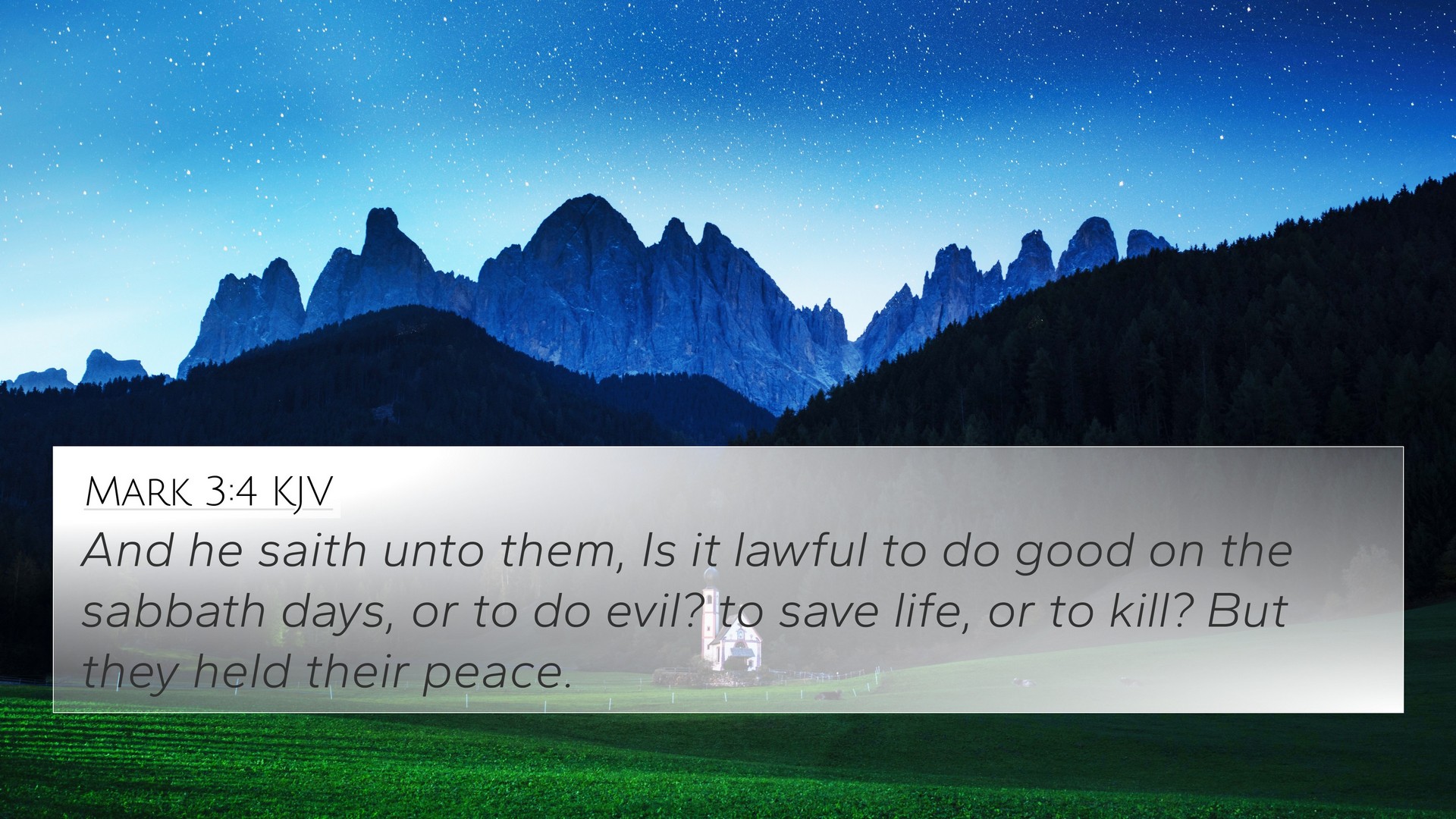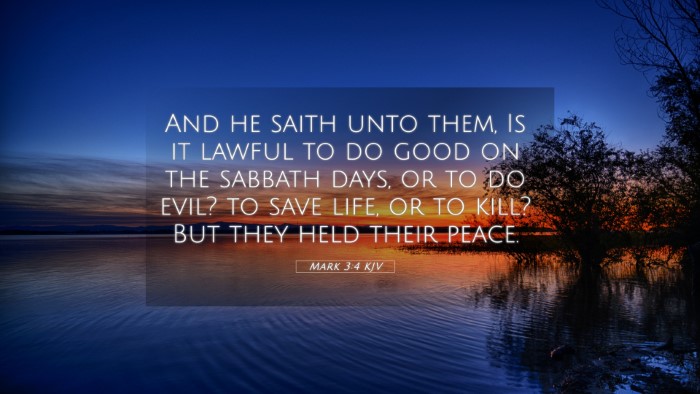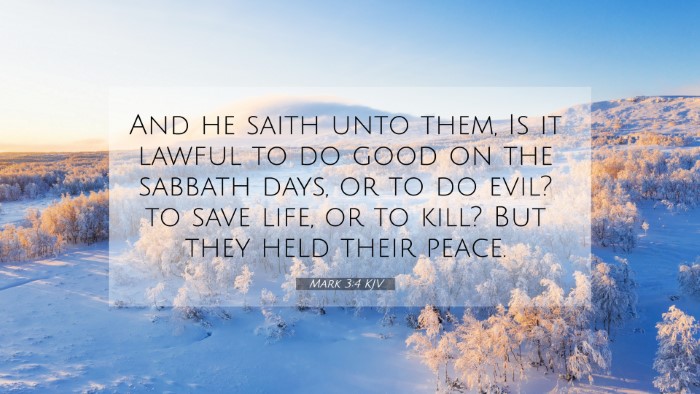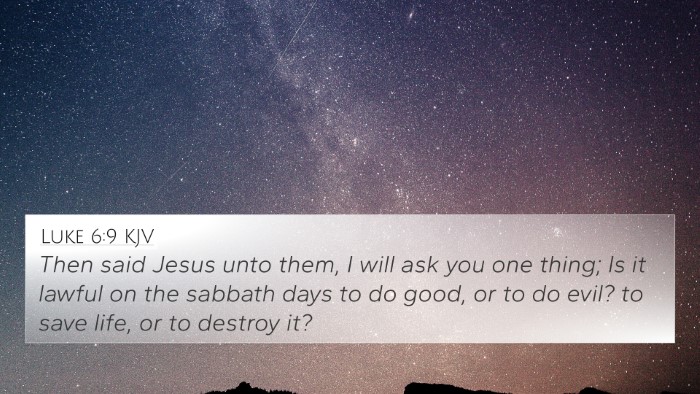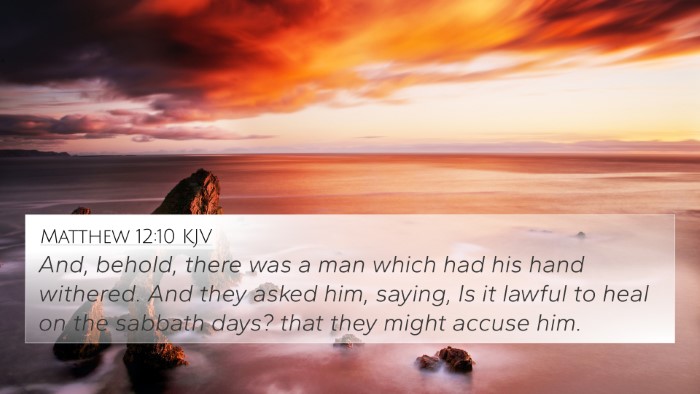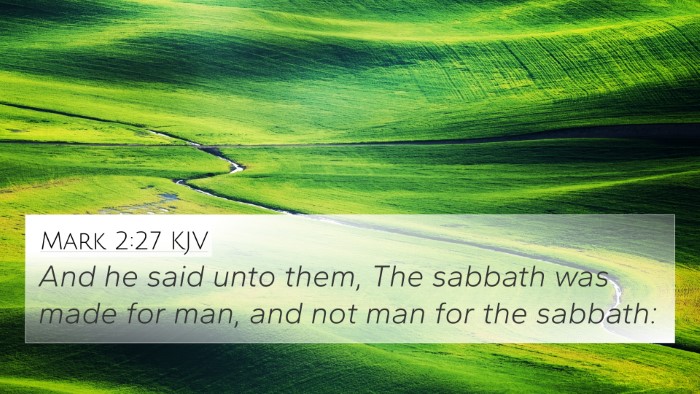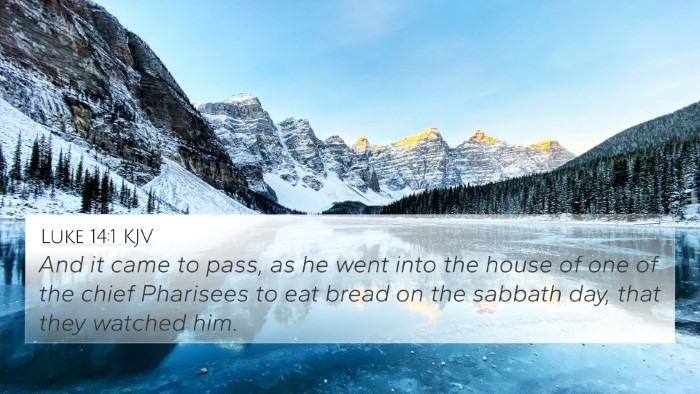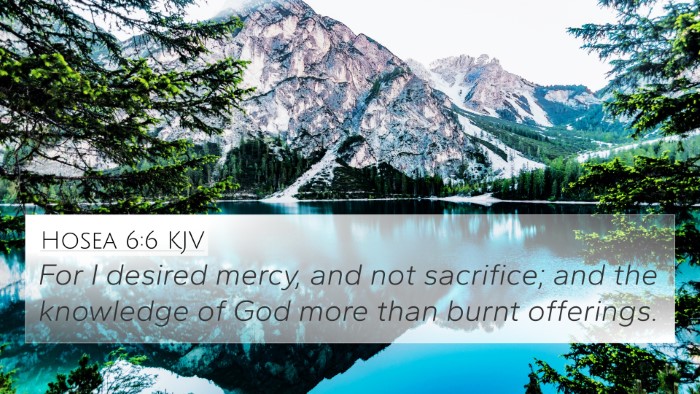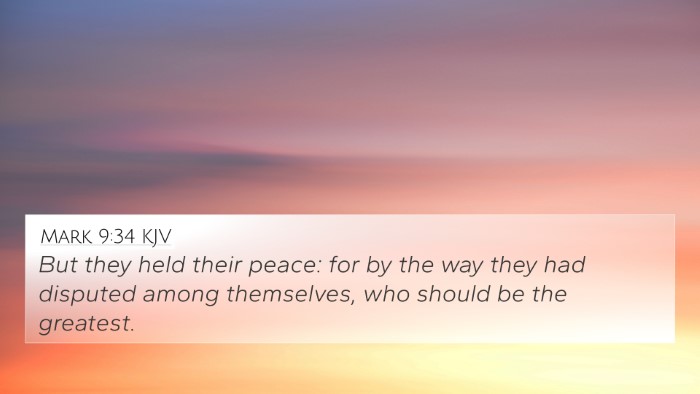Understanding Mark 3:4
The verse Mark 3:4 states: "And He said to them, 'Is it lawful on the Sabbath to do good or to do evil, to save life or to kill?' But they kept silent." This passage occurs in the context of a confrontation between Jesus and the Pharisees regarding the interpretation of the Sabbath law, highlighting the tension between religious rules and the ethical call to do good.
Summary of Insights
In the commentaries of Matthew Henry, Albert Barnes, and Adam Clarke, we observe a unified exploration of the meaning behind this verse:
- Purpose of the Question: Jesus poses a deliberate question to prompt reflection on the true essence of the law. It underscores that the Sabbath, meant for rest, should also embrace acts of mercy.
- Pharisees' Silence: Their inability to respond reveals their inner conflict and the inadequacy of rigid interpretations. It emphasizes the moral dilemma of adhering to tradition at the expense of compassion.
- Defining Good and Evil: The contrast between doing good and evil is essential. Jesus challenges the notion that legal adherence supersedes the spiritual command to preserve life.
- Legalism vs. Serve Humanity: This discourse serves as a critique of legalism. It shows that the spirit of the law should lead to acts of kindness rather than mere ritual observance.
Cross-Referencing Related Bible Verses
This verse is interconnected with various other scriptures that highlight themes of mercy, law, and ethical behavior:
- Exodus 20:8-10: Discuss the Sabbath requirement.
- Matthew 12:10-12: Illustrates the same principle of doing good on the Sabbath.
- Luke 6:9: Also emphasizes whether it is lawful to do good on the Sabbath.
- James 2:13: Stresses mercy triumphing over judgment.
- Mark 6:2: Reference to how Jesus often confronted societal norms.
- Isaiah 58:13-14: Highlights the heart of true Sabbath observance and service.
Connecting Themes Across Scriptures
This verse aligns with the broader biblical narrative regarding the balance between adhering to the law and demonstrating love and compassion:
- Mercy over Sacrifice: Hosea 6:6 defines God’s desire for mercy rather than ritualistic sacrifice.
- Love is the Fulfillment of Law: Romans 13:10 connects loving your neighbor with the essence of the commandments.
- Purpose of the Law: Galatians 3:24 indicates that the law is a tutor leading to Christ, emphasizing the transformational aspect of the law.
Thematic Connections and Comparative Analysis
In the analysis of Mark 3:4, we observe a deeper thematic connection to other biblical principles:
- Ethical Responsibility: The subplot of ethical obligation aligns with the teachings on love and compassion found throughout the New Testament.
- Understanding Jesus' Ministry: The establishment of Jesus' ministry was marked by acts of healing and compassion, displaying the heart of God for humanity.
- Human Life's Value: The dialogue about saving life speaks volumes to the sanctity of human life, a recurrent theme in biblical teaching.
Tools for Bible Cross-Referencing
To fully explore the connections found in the Bible, readers can employ several helpful resources:
- Bible Concordance: A comprehensive tool to locate specific words and ideas across the scripture.
- Bible Cross-Reference Guides: Often found in study Bibles, these guides point to related passages and themes.
- Online Bible Study Tools: Various websites offer searchable databases for cross-referencing scripture.
- Chain References: Some Bibles include chain references that link passages thematically.
Conclusion
Mark 3:4 serves as a critical reflection on the intersection of law and ethical conduct within the life of a believer. The multi-faceted responses from public domain commentaries invite further study into the merciful nature of God's laws as conveyed through Jesus' ministry. By engaging in scriptural cross-referencing and utilizing various Bible study tools, individuals can uncover deeper meanings and connections between the scriptures that enlighten their understanding of biblical principles.
